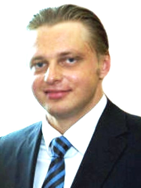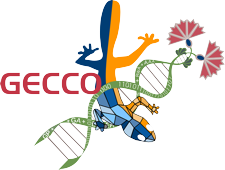
- Written by: Thomas Weise
Today, the project "Automated Algorithm Selection for Discrete Black-Box Optimization" with principal investigator Prof. Dr. Carola Doerr (Laboratoire d’Informatique de Paris 6 (LIP6), Sorbonne University, Paris, France), has been accepted for support from the Paris Region under the DIM-RFSI (Domaine d’Intérêt Majeur, Réseau Francilien en Sciences Informatiques) program. The partners involved in the project are Prof. Dr. Benjamin Doerr (LIX, École Polytechnique), Dr. Johann Dreo, (Researcher at Thales Research & Technology, Palaiseau), Dr. Pascal Kerschke (Westfälische Wilhelms-Universität Münster, Münster, Germany), Dr. Olivier Teytaud (Facebook Artificial Intelligence Lab, Paris), and Prof. Dr. Thomas Weise (of our Institute of Applied Optimization at Hefei University, China). The acceptance of this project shows that the interest in optimization algorithm selection, configuration, and benchmarking is ever-growing, and the presence of two industrial partners indicates that this is not just the case in the scientific community, but that the field has gained also very practical importance.
In the real world, a variety of planning, packing, scheduling, routing, or management problems emerge in many different scenarios. There are highly-efficient specialized algorithms for certain problems, e.g., the TSP or Satisfiability tasks, which have been developed over decades of research. The vast majority of practically relevant problems come with unique characteristics and constraints, rendering the specialized algorithms unsuitable for them, while the time available to deliver an algorithmic solution usually does not permit decades of research. Here, black-box algorithms (e.g., metaheuristics) are in order: General and flexible methods than treat the optimization task as black-box, i.e., require very little effort when adapting them to a virtually arbitrary task. However, there are many such metaheuristics and the question which one to use for the task at hand arises. The goal of this project is developing a suitable framework for training automated algorithm selectors and configurators for black-box optimization heuristics for discrete problems defined over a Boolean search space.
In this project, we will have the chance to collaborate more closely with many of our friends. The experiments will be done using the IOHprofiler, an open source optimization algorithm benchmarking tool. IOHprofiler is jointly developed by the teams of Prof. Dr. Carola Doerr, Thomas Bäck (Leiden University, The Netherlands) and Ofer Shir (Migal research institute, Israel), who, like most of the project team members, are already important members of the BB-DOB Workshop series. We are happy that our W-Model has been selected as one of the ingredients of the project, serving as a basic benchmark to investigate and test different fitness landscape measures to drive algorithm selection and configuration. The W-Model allows for defining a wide variety of different benchmark problem instances with different characteristics (scale, ruggedness, epistasis, neutrality, etc.) over the Boolean domain. As one of the modules of the project, we will evaluate for which problems a training based on the W-model provides accurate predictions and use this knowledge to extend the model together with Dr. Olivier Teytaud, the main developer of Facebook's nevergrad benchmarking platform.

- Written by: Thomas Weise
On Monday, 2019-07-08, we had the honor to host our distinguished guest Prof. Dr. Alexander A. Solovev, full professor at Fudan University [复旦大学] (Shanghai). Prof. Solovev gave the talk "Man-Made Nano- and Micromachines" at 10:00 in Room 210 of the Sino-German Incubator of our Hefei University (the newly renovated Building 33), in which we learned about the astonishing achievements of tiny devices, such as nano-tubes and the advantages and potential of such microscopic motors for a variety of applications, ranging from medicine over clean water/air/energy to improving the cost/benefit ratio of chemical reactions by orders of magnitude. We are thankful to Prof. Solovev for his interesting talk and the exchange of thoughts and inspiring discussions that followed. This talk was followed by the presentation "GAIN – The Global Academic Innovation Network" given by Mrs. Irina Lebedeva.

- Written by: Thomas Weise
It is often not easy for researchers to find other scientists to partner with for projects or to share expensive equipment with. Academic researchers also often find it hard to get in touch with industry partners to turn theoretical or fundamental research into real products, whereas small and mid-sized companies have a hard time discovering and teaming up with scientists to find answers to their research problems. On Monday, 2019-07-08, Mrs. Irina Lebedeva, COO of GAIN and PhD candidate in Computer Science and Artificial Intelligence at the East China University of Science and Technology (ECUST) [华东理工大学] in Shanghai, gave the talk "GAIN – The Global Academic Innovation Network" at 10:45 in Room 210 of the Sino-German Incubator of our Hefei University (the newly renovated Building 33). GAIN answers the above-mentioned problems by providing a comprehensive web platform, bringing together researchers from different domains, faculties, and universities as well as industry partners. We are thankful to Mrs. Lebedeva for her introduction into this helpful and indeed very needed platform, as well as for her work to develop and conceptualize it together with Prof. Dr. Alexander A. Solovev – who gave his talk "Man-Made Nano- and Micromachines" at the same meeting.

- Written by: Thomas Weise
Today, the program of the Black Box Discrete Optimization Benchmarking (BB-DOB) Workshop 2019 has been released. This third installment of the BB-DOB Workshop series (after BB-DOB@GECCO 2018 and BB-DOB@PPSN 2018) takes place at the Genetic and Evolutionary Computation Conference (GECCO'19) in Prague, Czech Republic, whose program can be found here. The long term aim of our workshop series is to produce, for the domain of discrete optimization: a well-motivated benchmark function testbed, an experimental set-up and methods for the generation of data output for post-processing and approaches for the proper presentation of the results in graphs and tables. The aims of this GECCO 2019 BB-DOB workshop are to finalize the benchmarking testbed for discrete optimization and to promote a discussion of which performance measures should be used. Our workshop has six accepted submissions and one exciting panel discussion. It will span over two sessions and take place on sunday, July 14, 08:30-12:30 in room Club A. The schedule will leave room for discussions and socializing. We are looking forward to welcome you in July. Don't miss out on the paper presentations and the panel discussion!

- Written by: Thomas Weise
On June 3rd and 4th, 2019, I attended the second meeting "Research and Teaching in China" co-organized by the DAAD, the [Deutscher Akademischer Austauschdienst], i.e., the German Academic Exchange Service [德国学术交流中心], and the German Consulate General in Shanghai. Similar to the first meeting in Beijing, there was a great attendance of about 60 German researchers who live, work, study, and teach in China. I had the chance to meet and talk with researchers from such diverse fields as material science, social science, law, water science, spatial planning, mathematics, theoretical computer science, city planning, project management, chemistry, agriculture, and bio-informatics. This second meeting again shows how strongly the science communities of China and Germany are connected and how much exchange is taking place for the benefit of both of our countries, from the level of young researchers up to the very top-level of senior and world-leading experts. I want to wholehearted thank both the team of the German Consulate General and the DAAD, who did a marvelous job in organizing this meeting. On one hand, there were there many highly interesting talks, discussing topics such as cross-cultural project management as well as research funding opportunities in China. On the other hand, us attendees also had plenty of opportunities for socializing and personal discussions. After a very nice opening ceremony in the residency of the German Consulate General on June 3rd, the talks on June 4th took place in the beautiful meeting room in the 40th floor of the Kunlun Jingan Hotel, granting a perfect view on Shanghai. In summary, I am very thankful for the opportunity to attend this meeting and I hope that many such meetings will follow.
Read more: Second DAAD Meeting "Research and Teaching in China" in Shanghai
- Team Members Receive Projects from the Provincial Natural Science Foundation of Anhui [安徽省自然科学基金] and the Science Foundation of the Anhui Education Department
- Research Talks by Profs. Dachuan Xu (BJUT) and Xiaoyan Zhang (NNU) [2019/04]
- Welcome to Prof. Dr. Rolf H. Möhring
- Welcome to Co-Supervised International Master Student Mr. Raphaël Cosson
